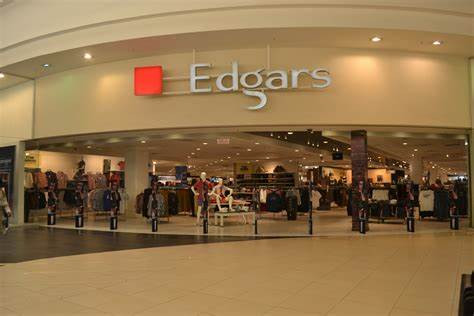
ECONOMISTS have lauded Edgars Stores Limited's launch of Express Stores as a strategic move to increase market share and promote inclusive economic growth in Zimbabwe.
The Victoria Falls Stock Exchange-listed clothing retailer recently reintroduced its Express Stores, targeting the lower-income segment currently dominated by the second-hand clothing market.
These stores will offer new clothing items priced between US$1 and US$10, positioning Edgars to compete in a cost-sensitive market.
Economist Stevenson Dhlamini said: “By targeting the low-income demographic, currently reliant on second-hand clothing, Edgars is poised to make a significant impact.
“This move will not only help retain valuable foreign currency within our economy but also align with government efforts towards import substitution. Overall, this could improve our balance of payments and foster a more resilient economic landscape.”
Economist Chenayimoyo Mutambasere said the shrinking middle class in Zimbabwe made it harder for businesses like Edgars to thrive.
"The middle class, which typically drives demand in retail, is often caught between high-end markets and lower income segments dominated by second-hand goods,” she said.
“Without this income group, Edgars may struggle to gain traction even with its lower-cost stores. Zimbabwe’s economic challenges, including drought and rising fuel costs, continue to squeeze household incomes, leaving little disposable income for non-essential goods like clothing and accessories.”
- Edgars Borrowdale relocates to bigger space
- Edgars Borrowdale relocates to bigger space
- Pension funds generate US$29 million
- Caledonia to restart key Bilboes operation
Keep Reading
Mutambasere also pointed out that in the lower-income demographic, clothing is often viewed as a "want" rather than a "need," which means essentials take priority over fashion purchases.
“Supply chain issues could make it difficult for Edgars to offer goods at competitive prices,” Mutambasere said.
“Local production costs remain high due to Zimbabwe’s ongoing energy crisis and the skyrocketing fuel prices, which add significant overhead to manufacturing and logistics,” she said.
"Importing affordable clothing options, which Edgars may need to do to compete, could also be challenging given these cost constraints."
Another economist Vince Musewe said: “It is all about price convenience and variety, second hand imported clothing is very cheap and available everywhere and even the quality is not bad so people tend to prefer buying those.
“Even new items can be cheaper to import online. The distribution model of goods and services has moved to online and to informal markets and there is more variety and styles. It is adapt or die for old brands like Edgars.”
Edgars group chief executive officer Sevious Mushosho said the new stores signified the group’s commitment to adapting to market trends and consumer demands.
"We are looking at launching additional eight express stores, which include shops in town and some in growth points. We will be launching a Jet in Shurugwi an express store there and launching express shops nationwide, which is part of the eight,” he said.
“We are going to spend at most probably around US$200 000 because express stores are not that expensive to put up. So, it is going to be low-cost small stores, containers and mobile stores as the company continues to diversify its portfolio.”
In line with this expansion, Edgars has retooled its Carousel manufacturing plant in Bulawayo to increase production volumes, aiming to raise output from 45 000 to 100 000 units per month.
This is expected to reduce production costs and make Edgars’ merchandise more competitive in both local and regional markets.
"Mainly, what we do in the region is to export our products. So the first phase was to retool Carousel and make sure our "handwriting" (quality of our products) reaches international standards, which we believe we have done by 80%," he said.
"So, we believe by the end of year, we will be 100% so we can start exporting our product. We believe we have good product and have seen guys coming from South Africa saying that our quality is higher than South Africa.
"We are looking at exporting to Zambia, Malawi, Kenya and Tanzania. So, we have been investigating those markets after we have properly dealt with South Africa.”
Second-hand clothing has become the preferred clothing choice for most consumers, leading to clothing retail chains taking a significant dip in revenue.
Truworths, one of the country’s clothing retailers, was recently placed under corporate rescue, citing the negative effects of cheap imports on its business.
The clothing retailer, which operates several stores across the country, with subsidiaries, Topic Stores (Pvt) Limited and Bravette Manufacturing Company (Pvt) Limited, has been struggling to compete with informal traders who sell cheap imported goods.







